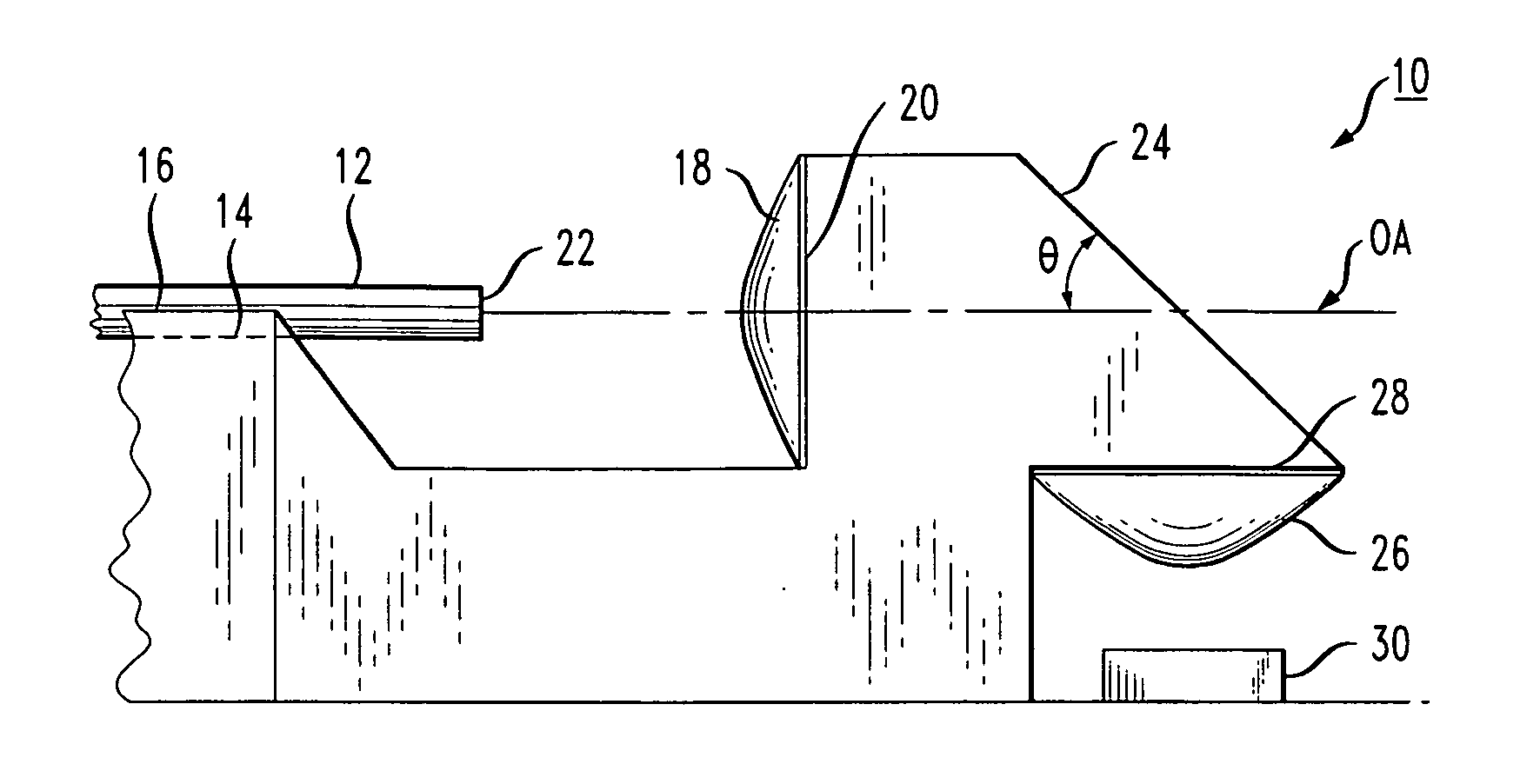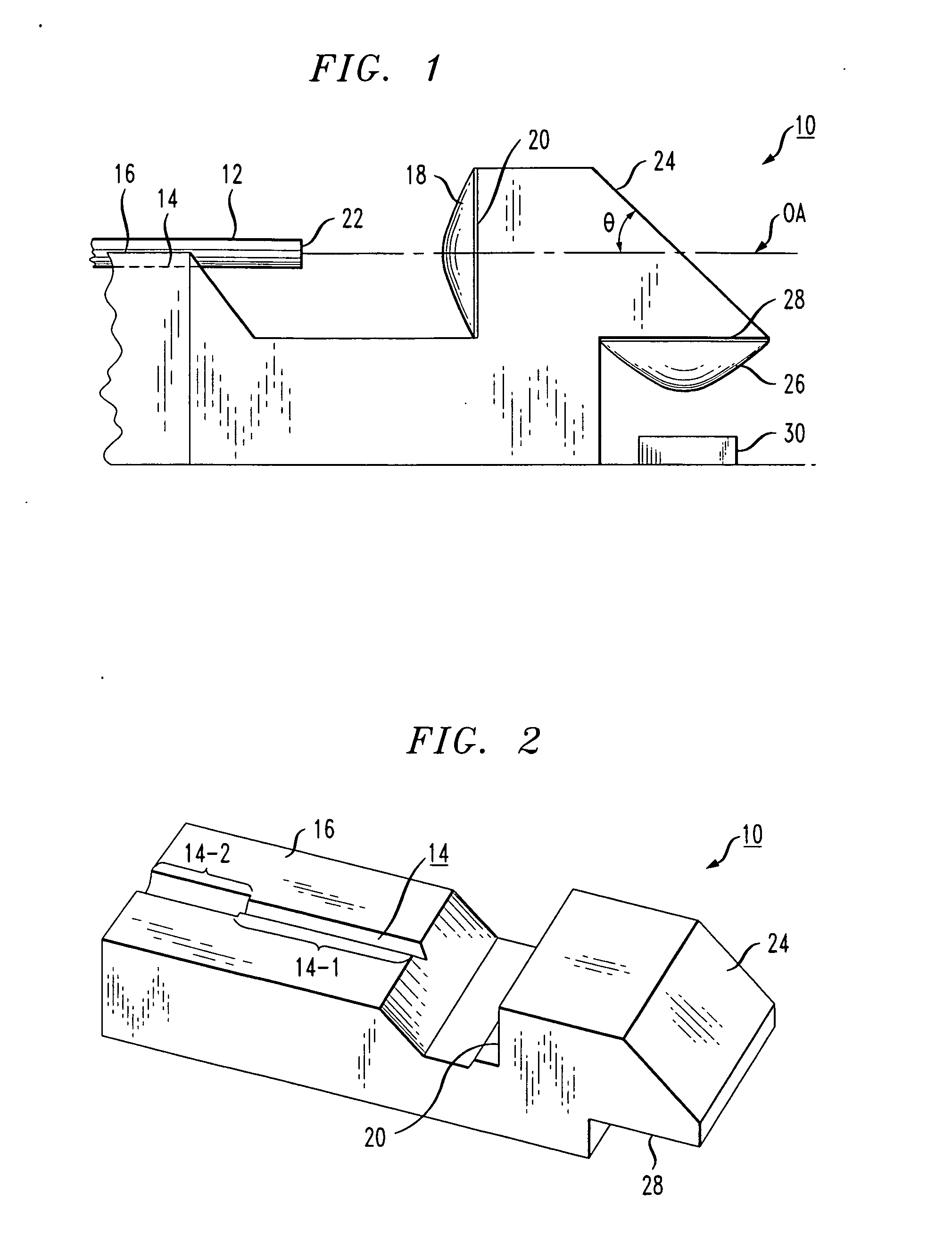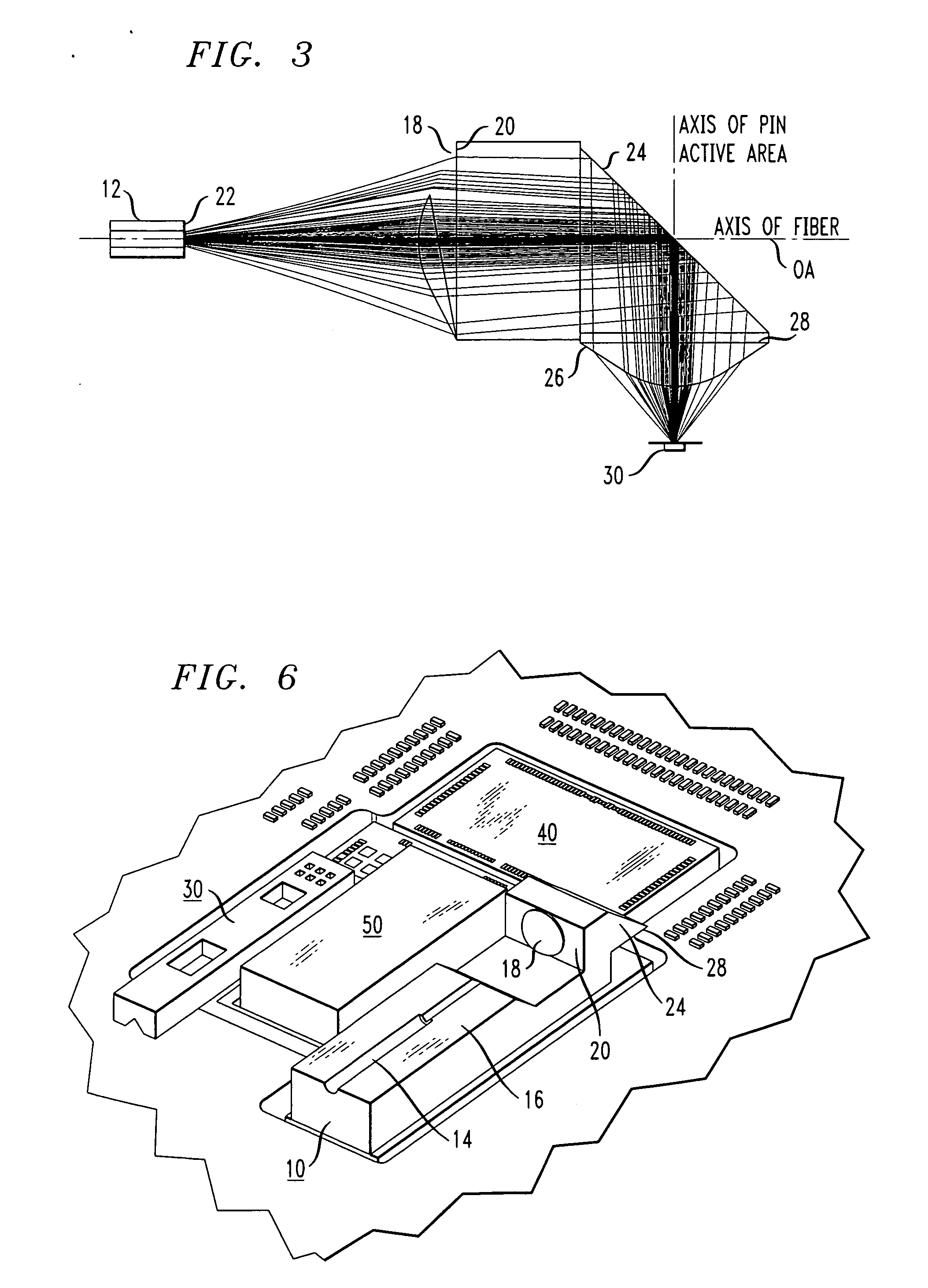Dual-lensed unitary optical receiver assembly
a unitary optical receiver and unitary optical technology, applied in the field of duallensed unitary optical receiver assembly, can solve the problems of reducing the size of the receiver, increasing the difficulty of performing active alignment, and reducing the cost and complexity of the process, so as to eliminate the need for flex circuit
- Summary
- Abstract
- Description
- Claims
- Application Information
AI Technical Summary
Benefits of technology
Problems solved by technology
Method used
Image
Examples
Embodiment Construction
[0022]FIG. 1 illustrates an exemplary unitary optical receiver module 10 formed in accordance with the present invention. Module 10 is formed of a transparent material, such as a polyimide thermoplastic resin or any other material which allows for an optical signal to propagate therethrough with little or no loss of signal. An optical fiber 12, carrying the received optical signal, is disposed within a V-groove 14 formed in surface 16 of module 10.
[0023]A collimating lens 18 is molded along a vertical wall 20 so as to align with the core region of optical fiber 12. Collimating lens 18 functions to capture the optical signal exiting endface 22 of fiber 12 and form a collimated wavefront which thereafter propagates through the transparent material of module 10. As shown in FIG. 1, the propagating signal will intercept angled wall 24 of module 10, where wall 24 is beveled at a predetermined angle θ with respect to the optical axis (OA). In a preferred embodiment, the angle θ may be 45°...
PUM
 Login to View More
Login to View More Abstract
Description
Claims
Application Information
 Login to View More
Login to View More - R&D
- Intellectual Property
- Life Sciences
- Materials
- Tech Scout
- Unparalleled Data Quality
- Higher Quality Content
- 60% Fewer Hallucinations
Browse by: Latest US Patents, China's latest patents, Technical Efficacy Thesaurus, Application Domain, Technology Topic, Popular Technical Reports.
© 2025 PatSnap. All rights reserved.Legal|Privacy policy|Modern Slavery Act Transparency Statement|Sitemap|About US| Contact US: help@patsnap.com



